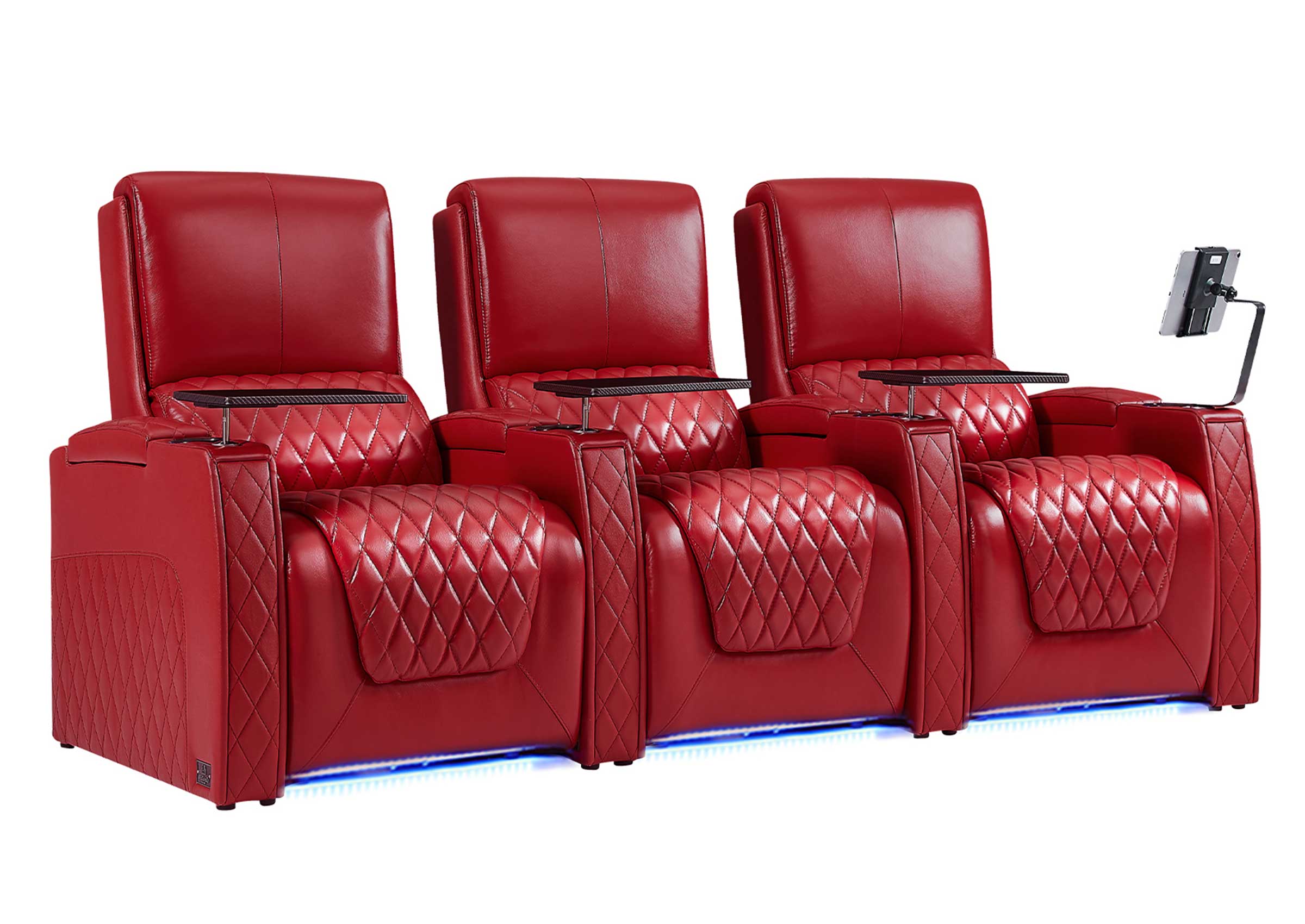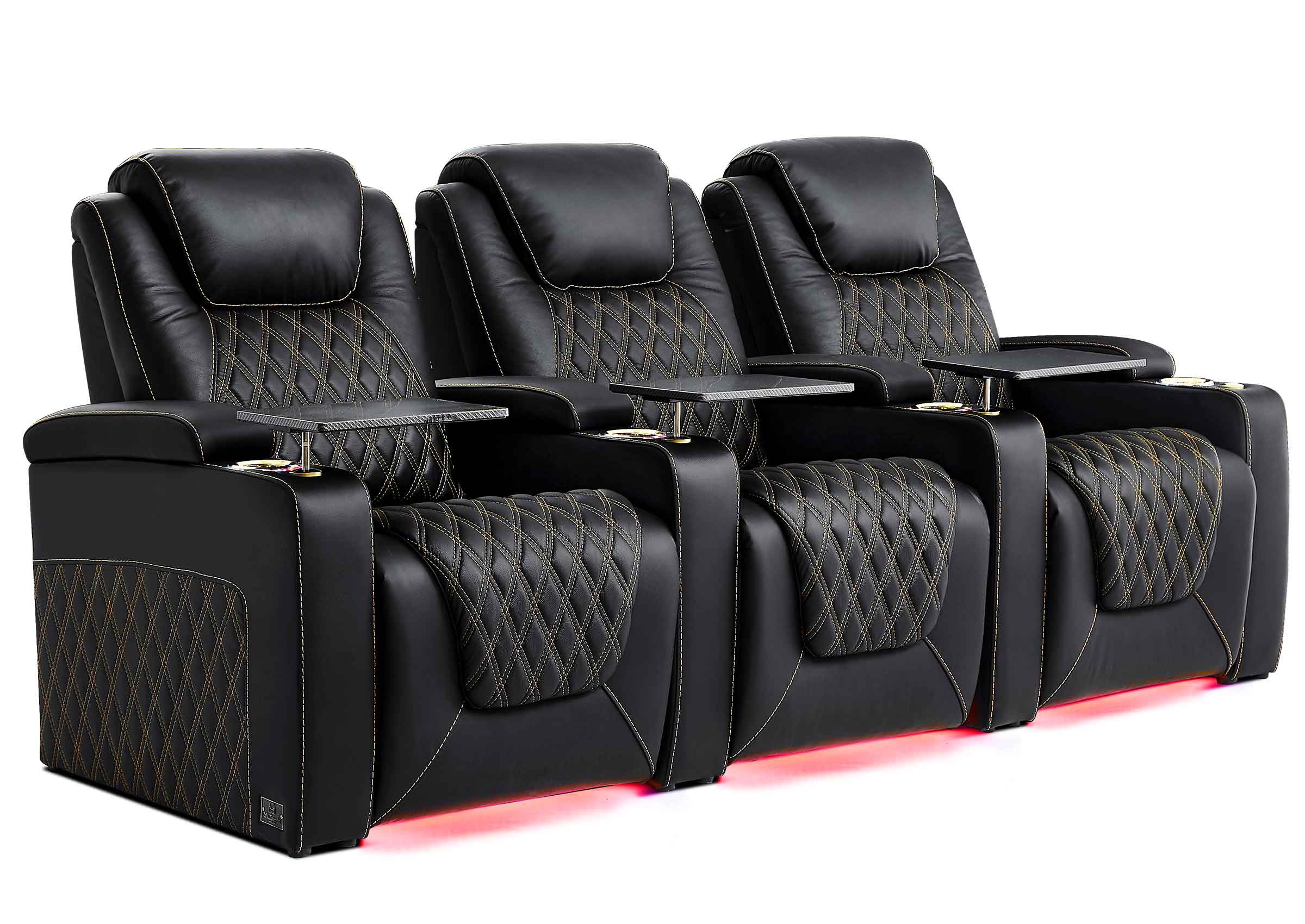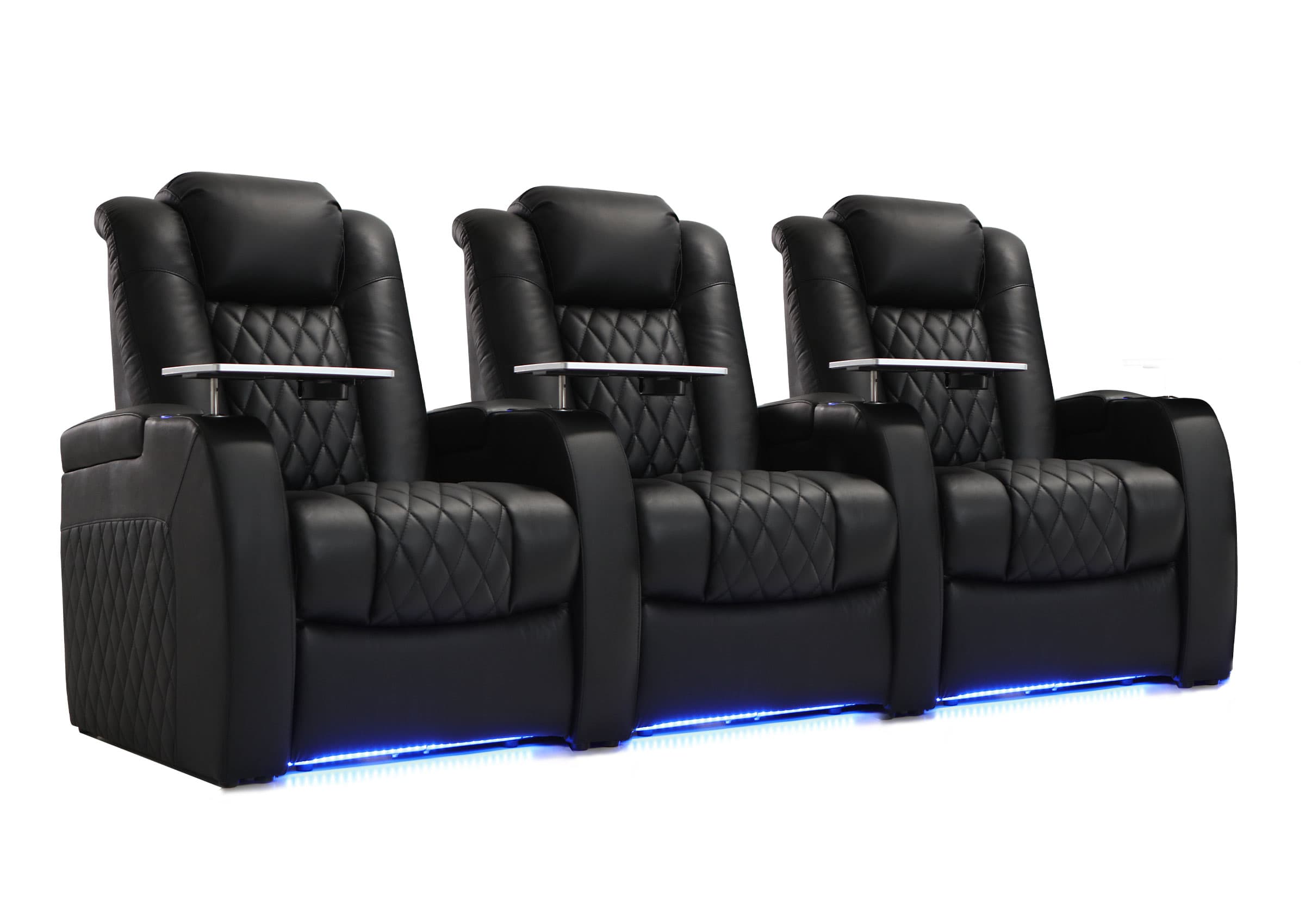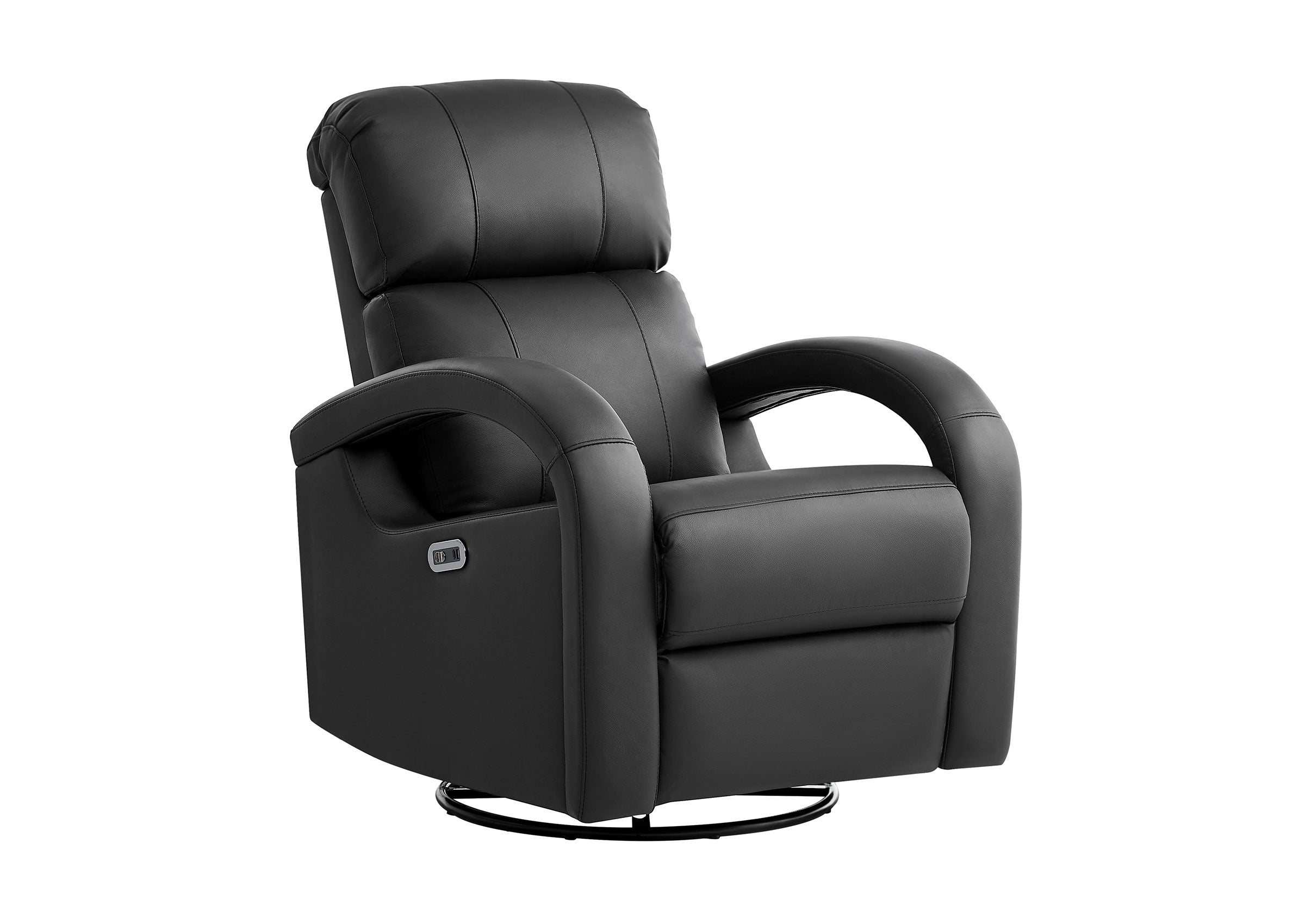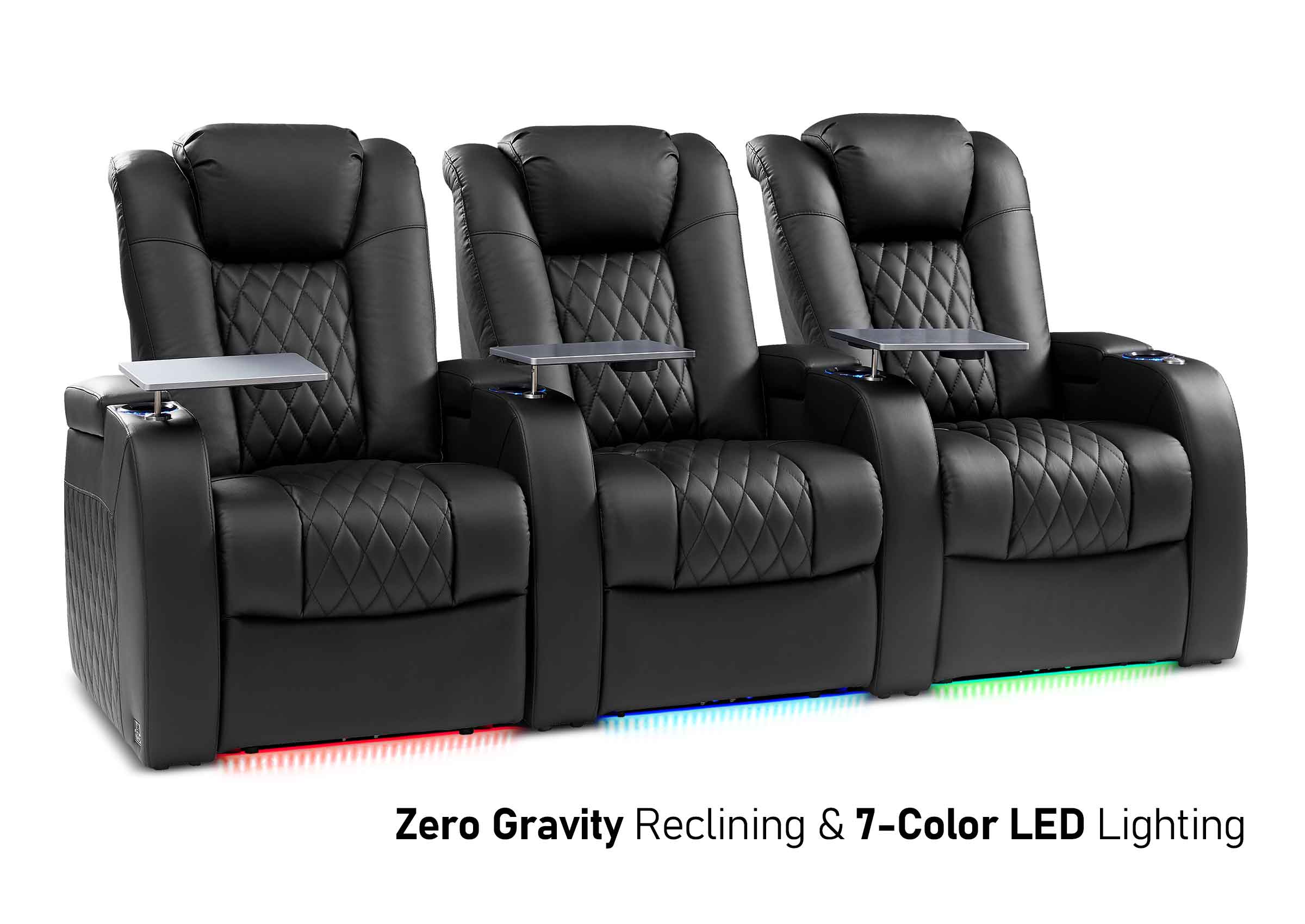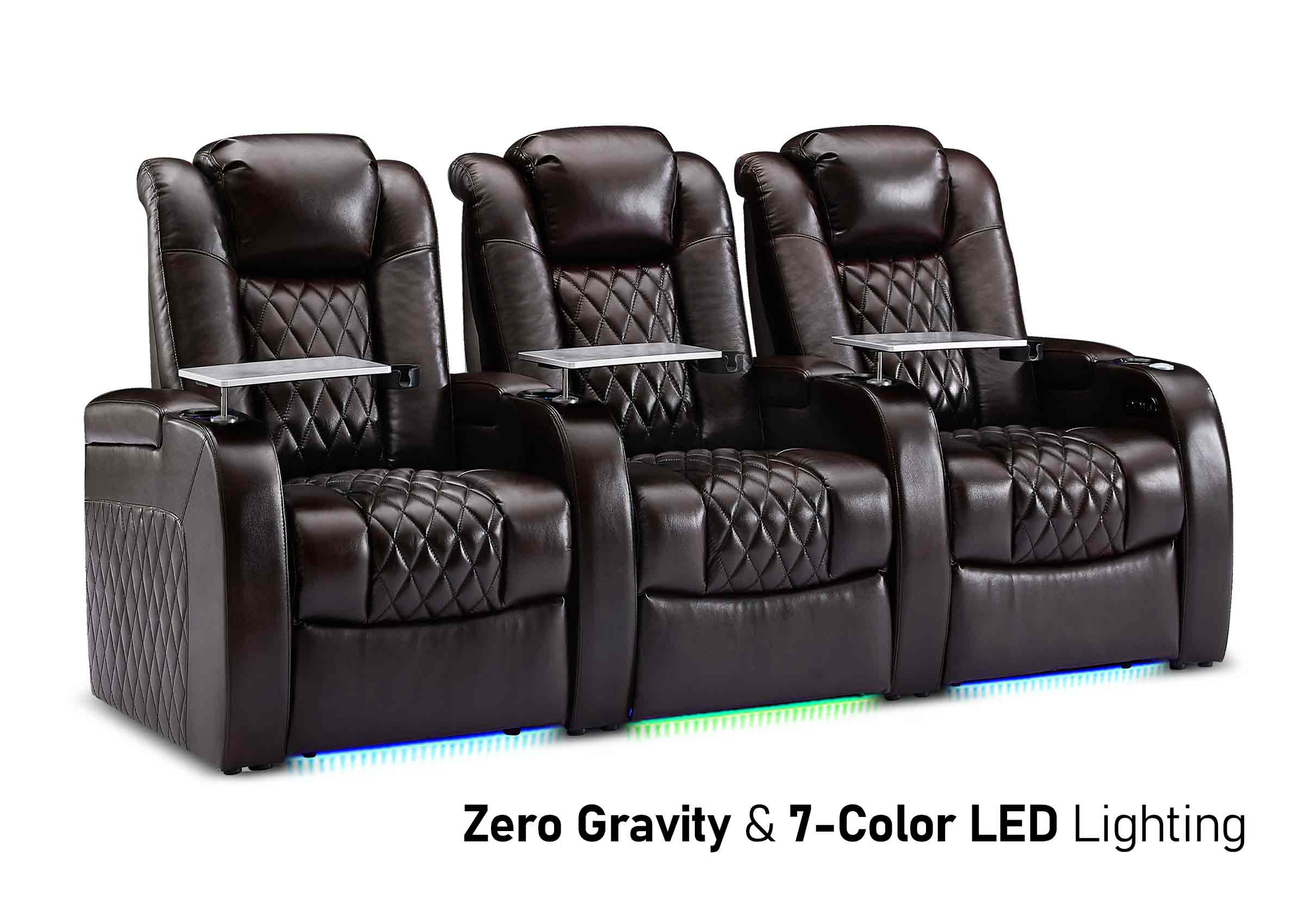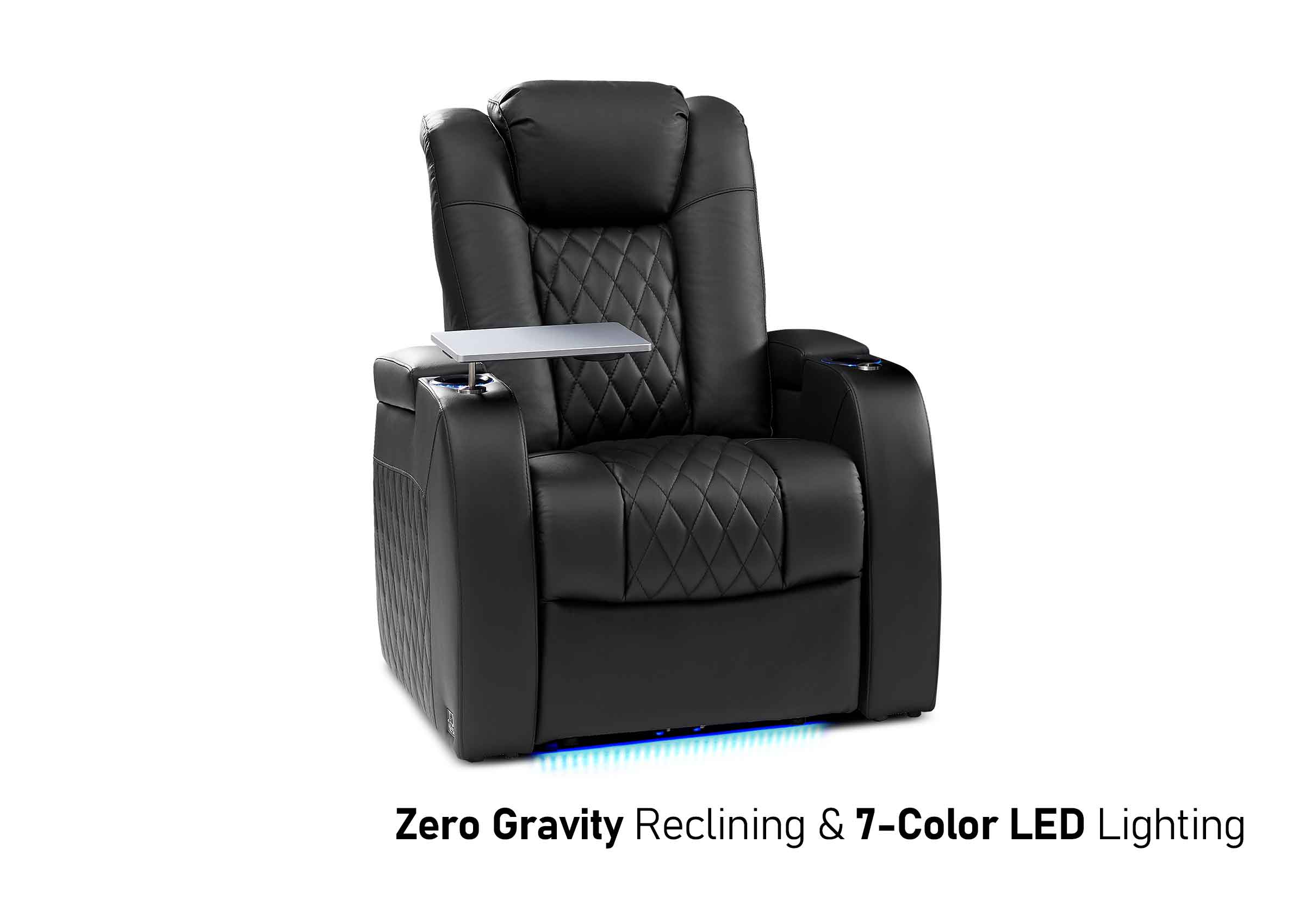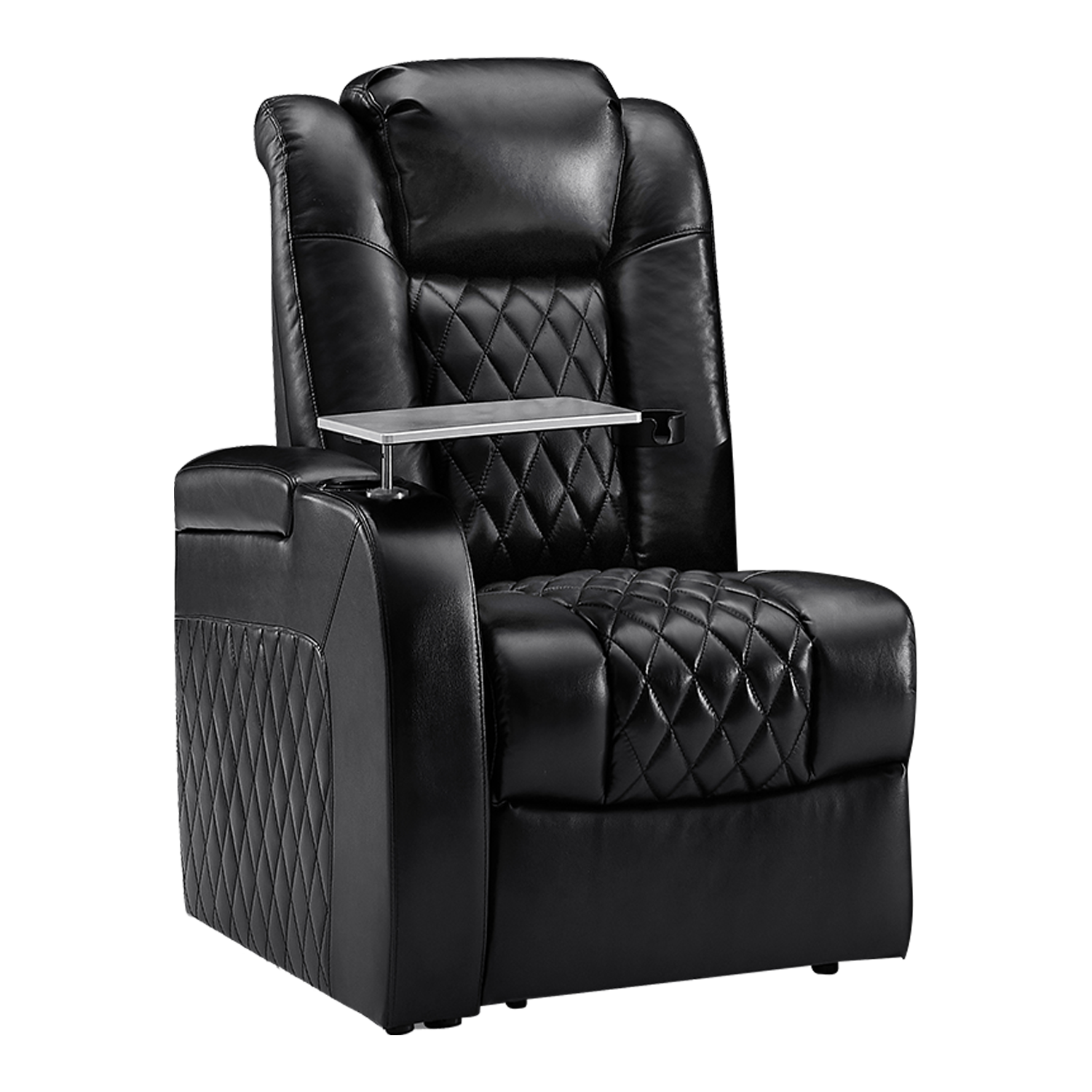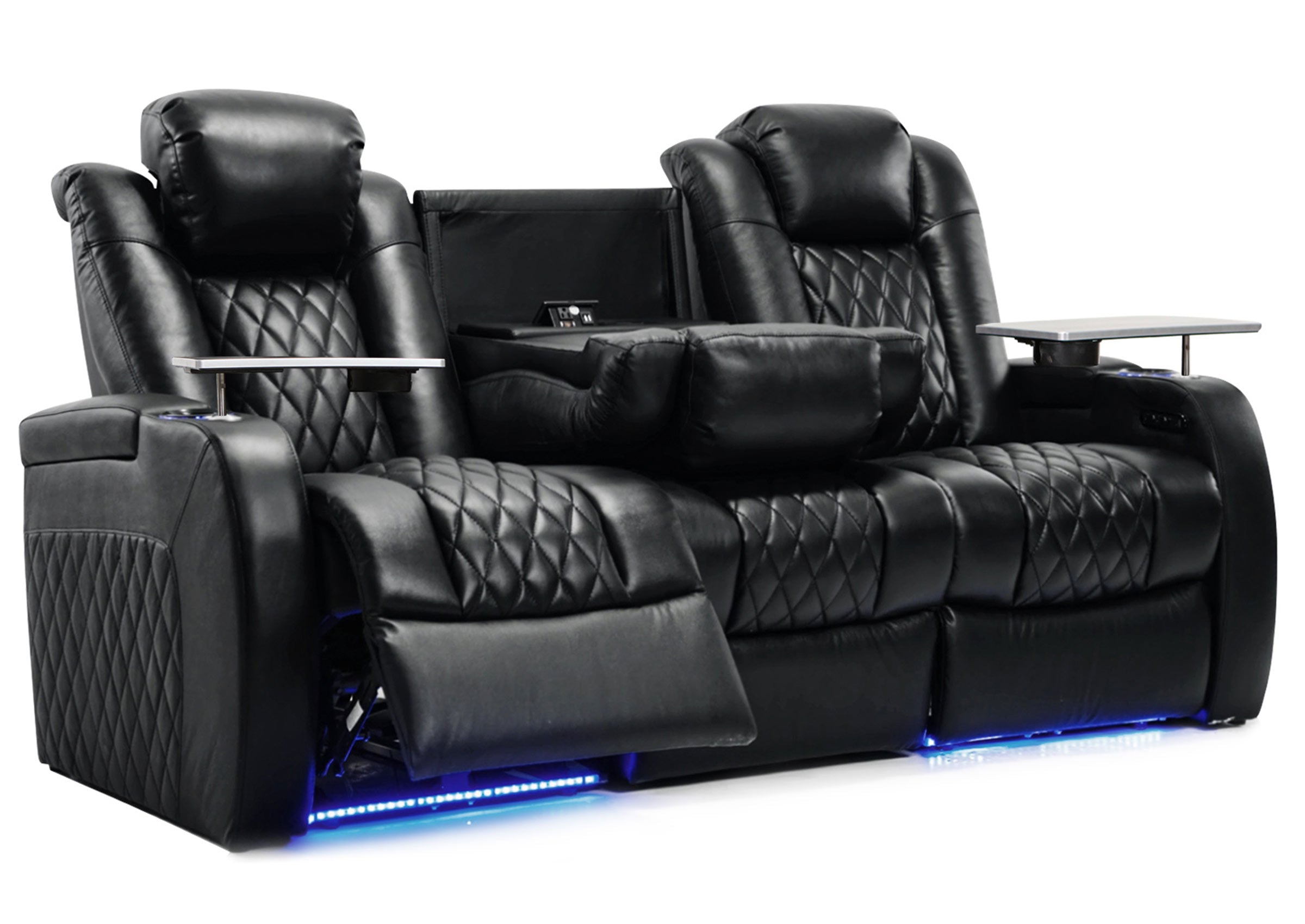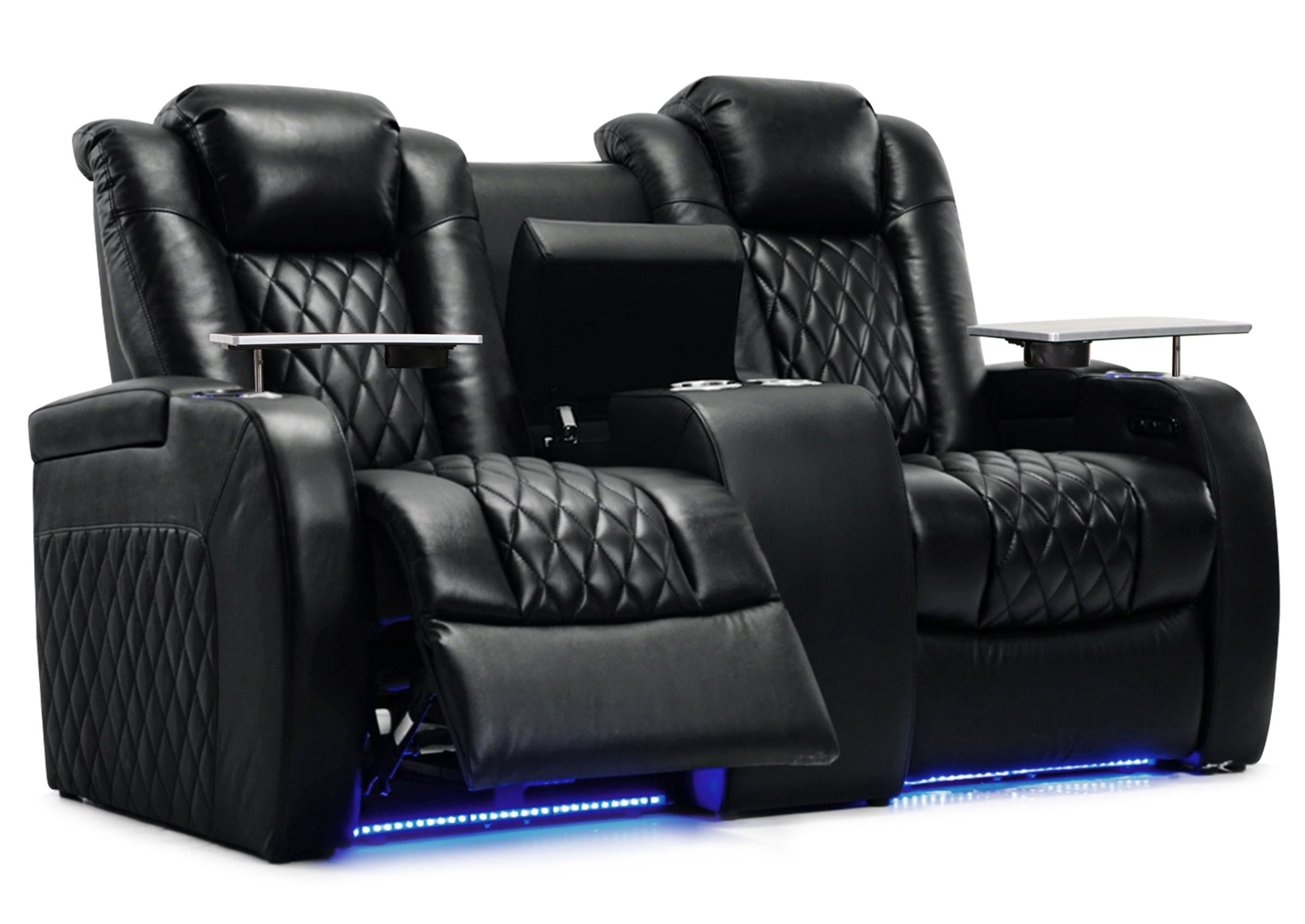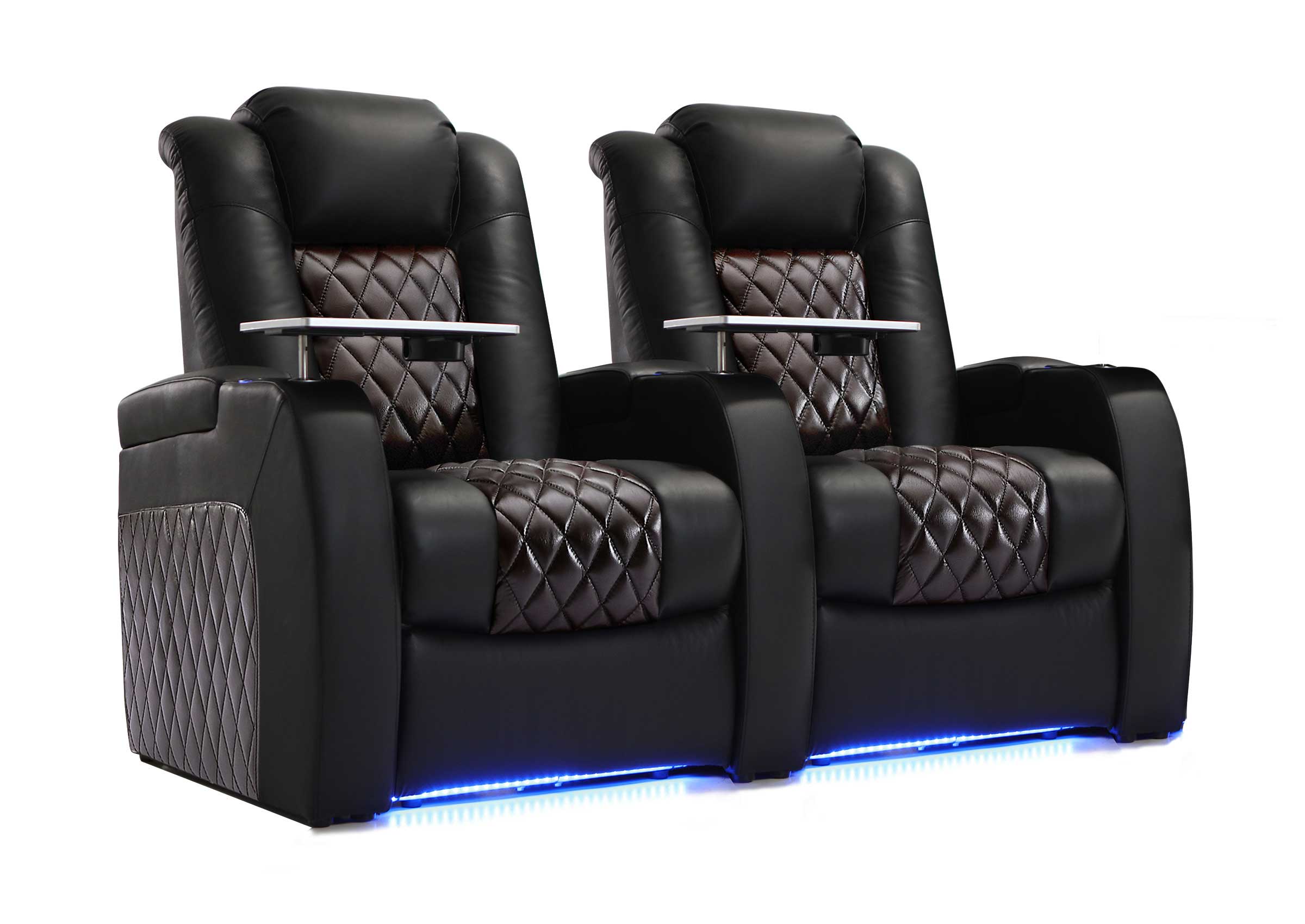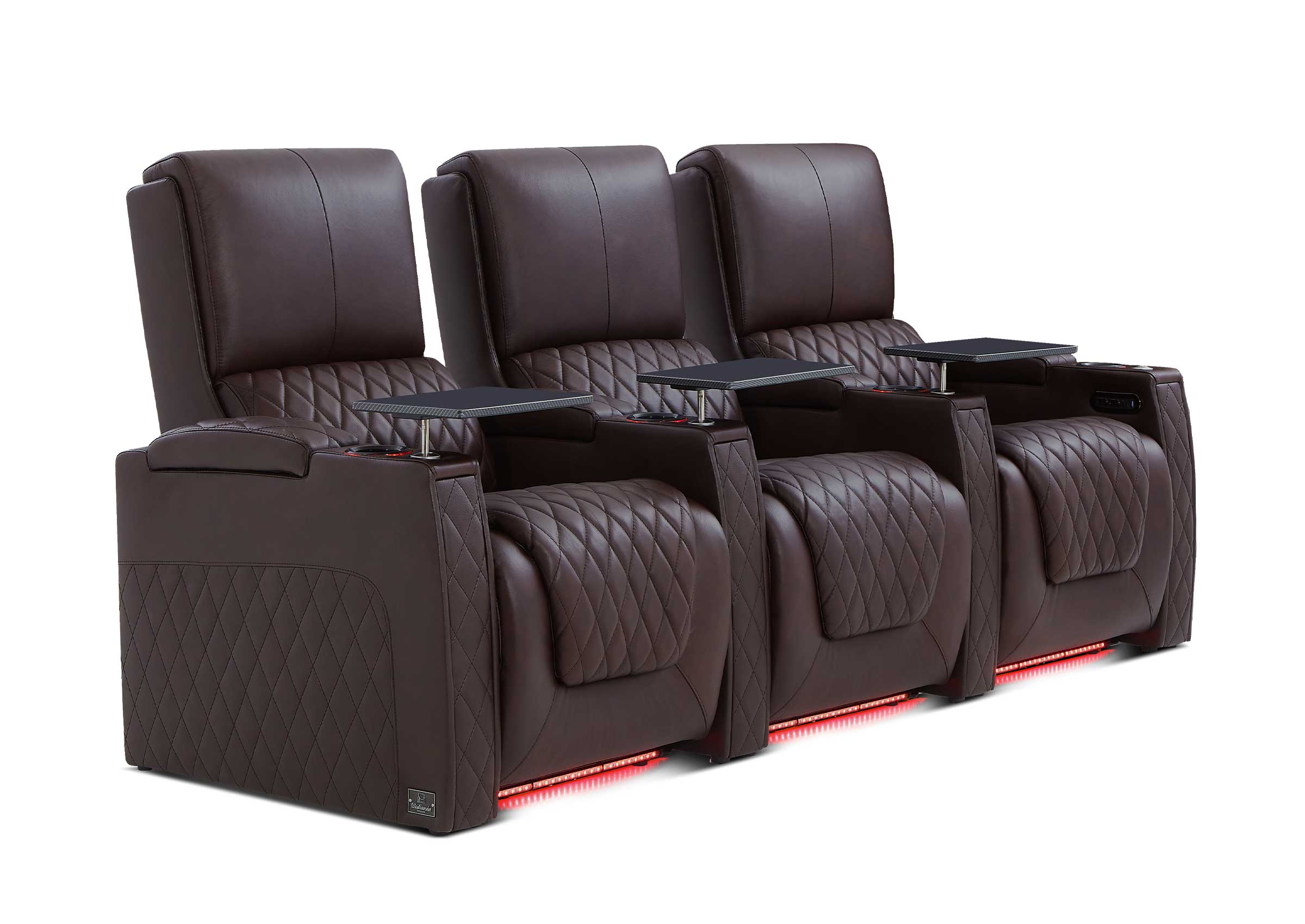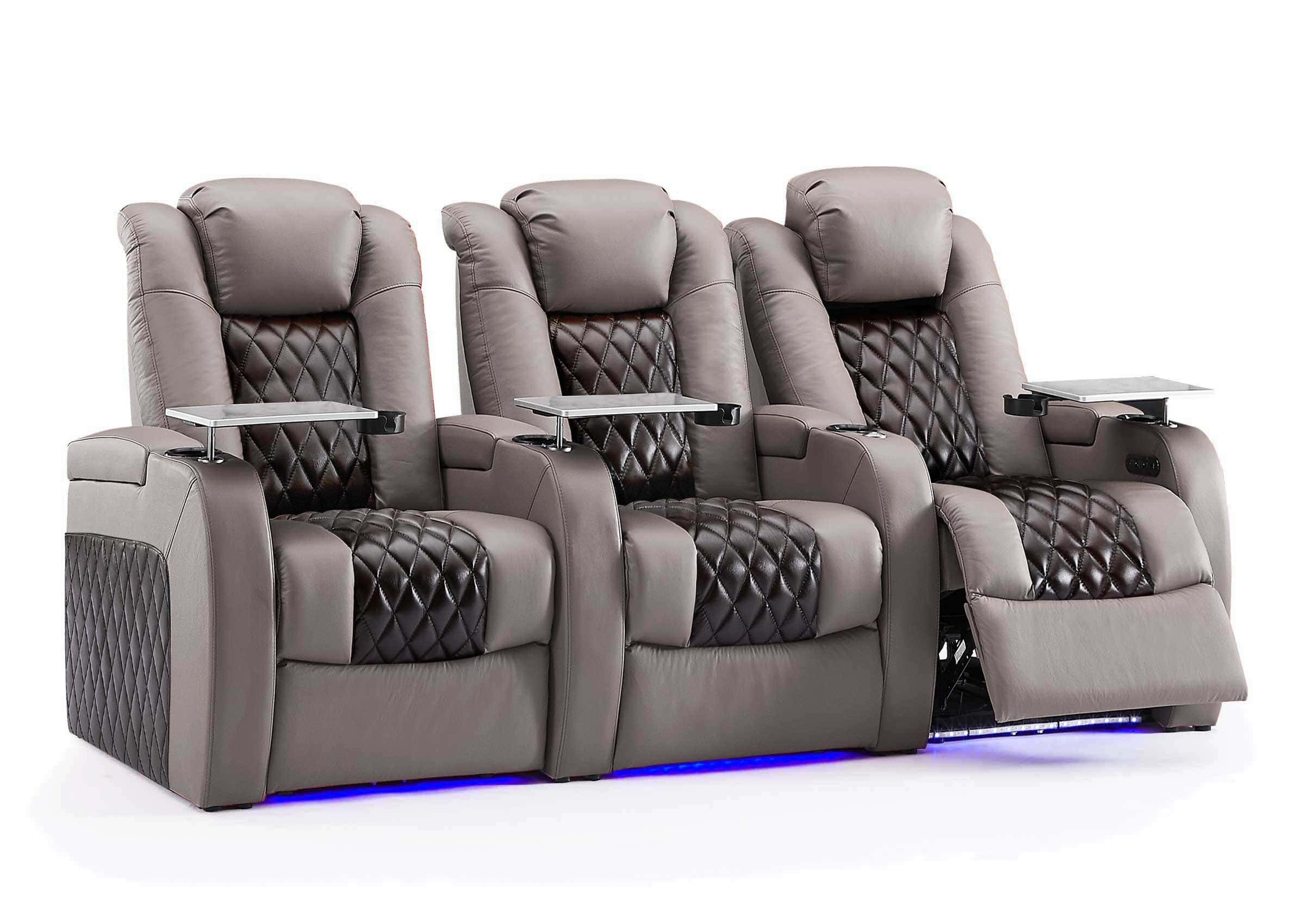In today's busy lives, home theater seating has become the ideal choice for many people. Whether it's for relaxation, immersive movie nights, or catching up on the latest TV shows, having a comfortable, stylish, and skin-friendly seat is a key element for the perfect home theater experience. However, when it comes to purchasing home theater seating, an important question often arises: What are these seats made of, and are they prone to causing allergies or sensitivities on the skin? This article delves into the various materials used in home theater seating and their potential impact on skin sensitivity, aiming to help you make informed decisions when choosing the right seating for your home theater.

I. Common Materials in Home Theater Seating
When it comes to home theater seating, there are a variety of materials to choose from, each with its own advantages, characteristics, and considerations for comfort and skin contact. Two popular options are leather and fabric, each offering distinct experiences.
A. Leather: Leather is a timeless and luxurious material that instantly adds sophistication and a premium feel to any home theater setup. It offers a range of benefits including exceptional durability, relatively easy maintenance, and a distinguished aesthetic that often improves with age. Leather seats come in various types, each with unique properties:
- Genuine Leather (e.g., Top-Grain, Full-Grain): This is the most durable and breathable option. Genuine leather is renowned for its natural texture, luxurious feel, and ability to adapt to body temperature. It's generally less likely to cause irritation due to its natural composition and breathability, making it a good choice for those without specific leather allergies. Top-grain leather, for instance, offers a smooth, comfortable surface that minimizes friction during long sessions.
- Bonded Leather: Made from leather scraps bonded together with polyurethane, it offers a more budget-friendly alternative with a leather-like look. While more affordable, its durability and breathability are generally lower than genuine leather.
- Faux Leather (PU Leather, Vegan Leather): These synthetic materials mimic the look and feel of real leather. They are often very durable, easy to clean, and come in a wide range of colors. For individuals with ethical concerns about animal products or specific allergies to genuine leather, faux leather can be a suitable choice, though its breathability can vary.
B. Fabric: Fabric seating options provide a cozy, warm, and inviting atmosphere in your home theater. With a wide array of fabric types available, you can find the perfect balance between comfort, durability, and skin-friendliness. Fabric seats often come in a vast variety of colors and patterns, allowing you to personalize your space to match your style:
- Microfiber: Known for its incredibly soft, suede-like feel, microfiber is highly durable, resistant to spills (if treated), and generally considered hypoallergenic due to its tightly woven synthetic fibers that resist dust mites and pet dander. It's a great choice for sensitive skin.
- Velvet: Offers a luxurious, plush feel with a rich aesthetic. Modern velvets (often synthetic blends) can be surprisingly durable and less prone to crushing. While soft, some individuals might find its texture warm, and it can attract dust if not regularly maintained.
- Woven Fabrics (e.g., Polyester Blends, Linen): These offer diverse textures and patterns, providing good breathability and comfort. Polyester blends are often durable and stain-resistant. Natural woven fabrics like linen are highly breathable and gentle on the skin, though they may wrinkle more easily.

II. Seat Material and Skin Sensitivity
While comfort and style are essential, it's equally important to consider the sensitivity of your skin and potential allergens when selecting home theater seating. Some individuals may experience allergies or skin reactions to certain materials or treatments. Let's explore this further:
A. Understanding Skin Sensitivity Issues: Skin sensitivity can range from mild irritation (like itching or redness) to more severe allergic reactions (such as contact dermatitis). It's crucial to understand the concept of allergies and common allergens that can trigger these responses. These may include:
- Dust Mites and Pet Dander: These common household allergens can accumulate in fabric upholstery. Tightly woven fabrics or leather can be better choices to minimize their presence.
- Specific Chemicals Used in Manufacturing: Dyes, flame retardants, or finishing treatments applied to upholstery can sometimes cause reactions. Look for certifications that indicate materials are free from harmful substances (e.g., OEKO-TEX Standard 100, Greenguard Gold).
- Natural Latex or Specific Synthetic Components: Though less common, some individuals may have sensitivities to specific natural components or synthetic polymers used in certain materials or cushioning.
B. Skin-Friendly Seat Material Choices: To minimize the risk of skin sensitivity, opt for materials that are known to be hypoallergenic or low in irritants. When making your choice:
- Prioritize Natural Fibers: Look for seats made from natural fibers like organic cotton, linen, or bamboo, as they tend to be highly breathable and gentle on the skin.
- Consider High-Quality Leather: Genuine leather (especially top-grain or full-grain) is often a good choice for many sensitive individuals due to its natural origin and breathability, provided there are no specific leather allergies.
- Opt for Tightly Woven Synthetics: Microfiber, due to its tight weave, can be excellent for resisting allergens like dust mites and pet dander, making it a "skin-friendly" synthetic option.
- Seek Certifications: Look for manufacturers who provide certifications (like those for low VOCs or chemical-free processing) for their materials, indicating they are free from harsh chemicals or treatments that may cause skin irritation.

III. Frequently Asked Questions
To address any lingering concerns and provide a comprehensive overview, here are some commonly asked questions about home theater seating:
FAQs
Q: Are home theater seats suitable for everyone to use?
Home theater seats are designed to accommodate a wide range of individuals, offering adjustable features for personalized comfort. However, personal preferences and specific physical conditions (e.g., mobility issues, back pain) may vary. It's crucial to consider factors such as seat dimensions, cushion firmness, ergonomic support, and reclining capabilities when choosing seats that best cater to your unique comfort needs and health requirements.
Q: Which materials can reduce irritation on sensitive skin?
Materials known to be gentle on sensitive skin and help minimize irritation include high-quality genuine leather, microfiber, and natural fibers like organic cotton or bamboo. These materials typically offer good breathability and are less likely to harbor common allergens. It's always essential to test different materials if possible and consult with healthcare professionals or allergists if you have specific allergies or severe sensitivities.
Q: What are the maintenance and cleaning recommendations for home theater seating?
Maintenance and cleaning instructions vary significantly depending on the material. For leather, regular dusting and occasional conditioning (as provided with many Weilianda luxury chairs) are key. For fabrics, vacuuming regularly and prompt spot treatments are essential. Always refer to the manufacturer's specific guidelines for cleaning products and methods to ensure longevity and hygiene, avoiding harsh chemicals that could damage the material or irritate skin.
Q: What materials are commonly used in home theater seating?
A: The most common and popular materials include various types of leather (genuine leather like top-grain, bonded leather, faux leather) and a wide array of fabrics (such as microfiber, velvet, and various woven blends). Each offers distinct benefits in terms of aesthetics, comfort, and durability.
Q: How important is material choice for the longevity and comfort of home theater chairs?
A: Material choice is extremely important. High-quality materials like genuine top-grain leather or durable performance fabrics significantly contribute to a chair's longevity by resisting wear and tear, maintaining their shape, and supporting continuous comfort over time. They directly impact how well the chair withstands usage and retains its original feel and appearance.
Q: Can material choice impact the overall movie experience?
A: Absolutely. The right material fundamentally enhances comfort, which is crucial for long movie marathons. Comfortable seating allows you to relax fully and immerse yourself in the film without physical distraction, directly improving the overall movie-watching experience. Moreover, the tactile feel and visual appeal of premium materials contribute to the luxurious ambiance of your home theater.
Q: Are there eco-friendly materials available for home theater seating?
A: Yes, the market is increasingly offering eco-friendly options. These can include sustainably sourced woods for frames, recycled content in fabrics or foams, and natural fibers like organic cotton or bamboo, providing both sustainability and comfort.
Q: How does material affect the maintenance of home theater chairs?
A: Different materials require varying levels of care. Leather is generally easy to wipe clean but benefits from conditioning. Microfiber is often stain-resistant. Velvets and some woven fabrics may require more frequent vacuuming or professional cleaning for deeper stains. Your material choice directly influences the ease and frequency of maintenance, impacting the chair's longevity.
Q: Is it worth investing in high-quality material for home theater seating?
A: Absolutely, investing in high-quality material is highly recommended. It not only ensures superior comfort and exceptional durability, meaning your seating will last longer and feel better, but it also significantly enhances the aesthetic appeal and overall value of your home theater experience in the long run.
Q: How does material density and resilience contribute to the longevity of the chairs?
A: Materials with higher density and better resilience (ability to spring back after compression) significantly contribute to the longevity of the chairs. This ensures that cushions maintain their firmness and shape over extended periods of use, preventing sagging and preserving the chair's comfort and ergonomic support for years.
Q: Can material choice affect the sound quality in a home theater?
A: Indirectly, yes. Some materials have different acoustic properties. Softer, porous fabrics can absorb sound, potentially reducing echoes and improving sound clarity in the room. Smoother, denser materials like certain leathers may reflect more sound. While not a primary factor, it can subtly alter the acoustics of your room, contributing to a balanced audio experience.
Q: Are there hypoallergenic materials available for those with sensitivities?
A: Yes, there are several hypoallergenic options specifically designed for those with allergies or sensitivities. These often include tightly woven microfibers, specific types of genuine leather, and natural organic fibers like cotton or bamboo, which are less likely to trap allergens or contain irritants.
Q: How do I choose the right material for my home theater seating?
A: Consider several key factors: prioritize comfort for long sessions, assess durability based on expected usage (e.g., kids, pets), evaluate maintenance requirements, and align with your personal preferences in terms of texture, appearance, and your existing room decor. Don't forget to factor in any known skin sensitivities or allergies.
In conclusion, when selecting home theater seating, it's essential to meticulously consider both the material composition and its potential impact on skin sensitivity. Whether you ultimately choose the luxurious durability of leather or the cozy versatility of fabric, prioritize genuine comfort, long-term durability, and always assess the potential impact on your skin's health. By thoroughly understanding the myriad options available and carefully considering your unique needs and preferences, you can confidently create a home theater space that is not only visually stunning and acoustically pleasing but also exceptionally comfortable and perfectly skin-friendly for everyone.
Explore Weilianda's premium home theater seating collection today and find the perfect material to complement your lifestyle and enhance your entertainment experience!









